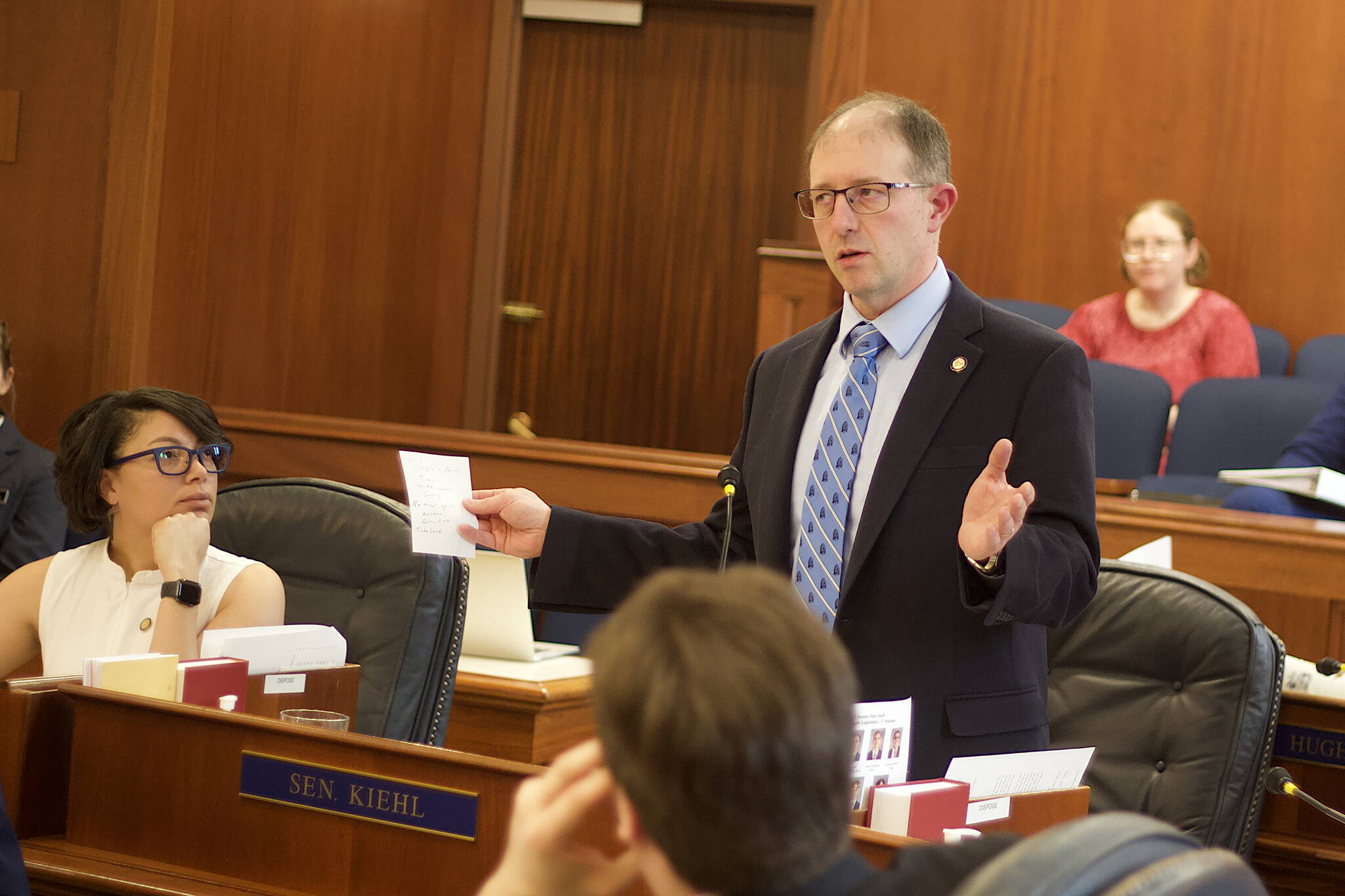A significant victory in a Juneau lawmaker’s multi-year effort to reduce harm caused by PFAS chemicals occurred Monday as the state Senate unanimously passed a bill banning the substance for most firefighting purposes.
Senate Bill 67 by state Sen. Jesse Kiehl, a Juneau Democrat, is what he calls a “no new spills” bill that lacks cleanup provisions of proposals from previous years that failed to pass the Legislature. In an interview after the floor session, he said he believes the cleanup issues will be addressed by the first-ever nationwide standards for what are commonly called “forever chemicals” that the U.S. Environmental Protection Agency is expected to enact this year.
“I think the EPA is exactly on the right track with clean water regulations and I expect the Alaska Department of Environmental Conservation will be close on their heels,” he said. “The commissioner has said that publicly.”
Kiehl’s bill bans PFAS chemicals (an abbreviation for per- and polyfluoroalkyl substances) for firefighting, except when used for large oil and gas industry fires until a substitute chemical able to handle such large incidents is available. It also allows the state to accept up to 40 gallons of a firefighting substance that contains PFAS chemicals from about 130 small, remote communities that use “load carts” to store firefighting chemicals.
The senator, in an overview of the bill during the floor session, noted PFAS chemicals are effective at firefighting because the compounds are highly resistant to being broken down, but that comes with a corresponding durability in areas they’re used. He said said most of the contamination at the state’s hundreds of existing sites is from federally mandated training at locations such as airports, rather than fighting actual fires, but regardless of purpose, the chemicals pose a huge range of health risks ranging from birth defects to cancer.
“These things are bad for people and they’re bad for people in incredibly small concentrations,” he said.
Safer alternative substances are now deemed acceptable for most uses, including training, in the U.S. and multiple European countries, Kiehl said.
SB67 now goes to the House, where its prospects with less than 10 days left before this year’s adjournment are uncertain, especially with large differences remaining between the two chambers on major issues such as next year’s budget. A companion House bill did receive a hearing on Friday.
• Contact Mark Sabbatini at mark.sabbatini@juneauempire.com.

